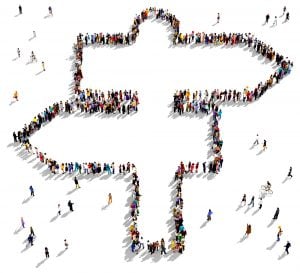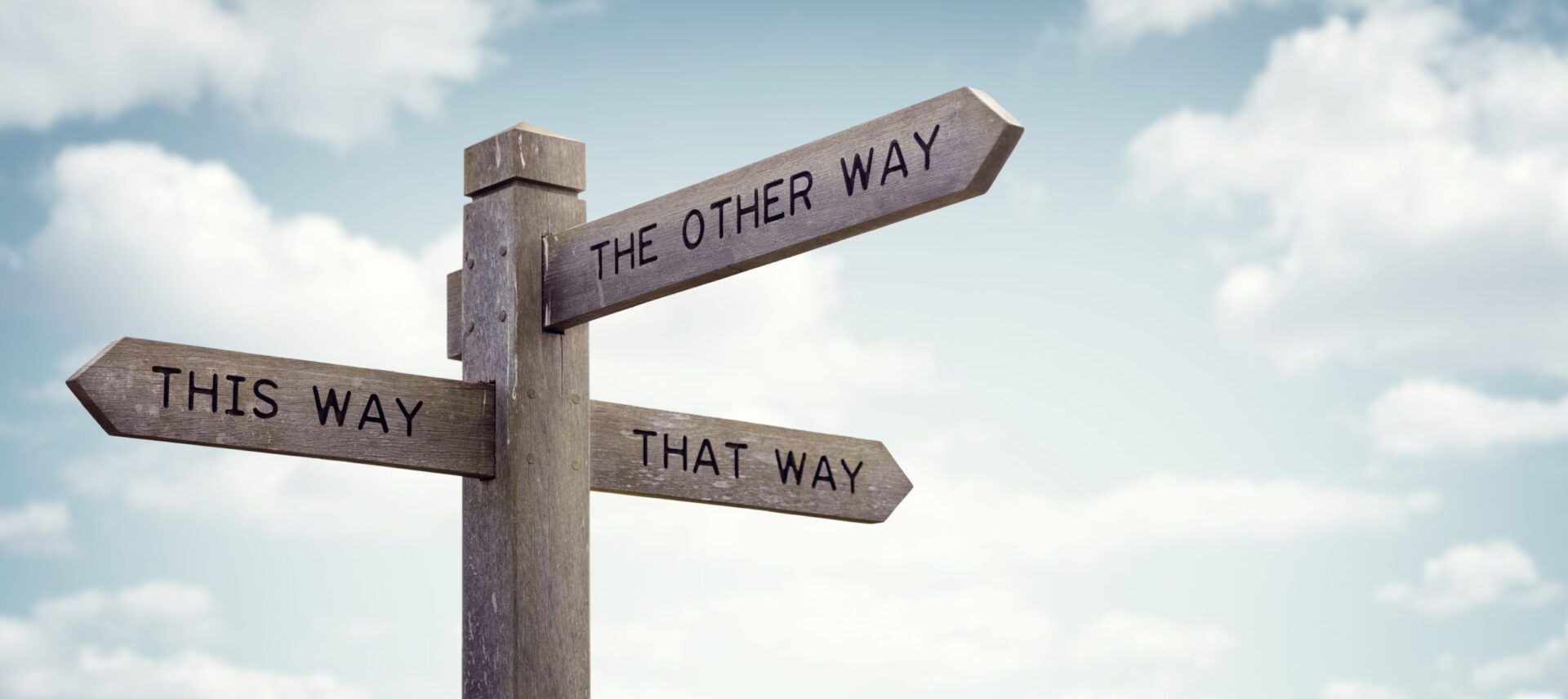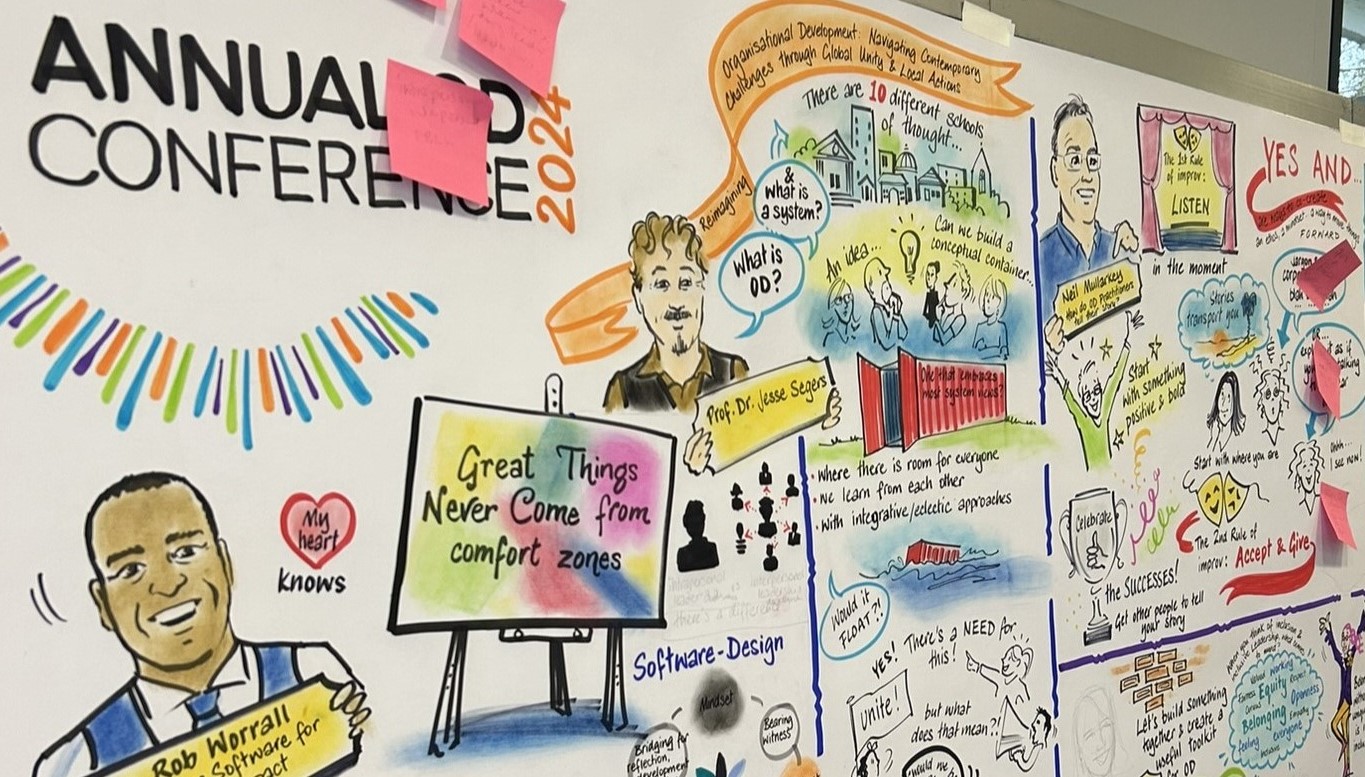
Human beings struggle with uncertainty. We’re not really designed for it. Whilst it varies from person to person, generally speaking ‘not knowing’ is an anxiety inducing state. Unchecked our anxiety can destabilise us. It can heighten our mistrust of the words and deeds of others or lead us to latch on to and unquestioningly proliferate false hopes. It can cloud our judgement and decision-making and cause us to behave in ways that attempt to maximise self-protection, through isolation from different views or alignment with the safety of those that don’t pose a challenge, for example. On one level it’s a totally logical preservation instinct, and on another its super risky: pulling us out of generative dialogue with others and drastically diminishing our collective potential. I think that can be as true in organisations as it is anywhere.
As part of organisational life currently, most of us have been forcibly reorienting to highly disrupted working patterns and practices, faltering (or overwhelming) market demands, and health and wellbeing concerns in a context of unprecedented uncertainty. All whilst attempting to care, or be thwarted whilst wanting to care, for those dear to us. And that’s without mentioning the waves of grief, sadness and other pains swirling around us.
It’s perhaps no wonder that conversations with leaders and OD practitioners experiencing the initial waves of COVID-19 impact have been dominated by stories of unsatisfying or painful interactions, impossible dilemmas, competing demands and attempts to grasp (false?) certainties out of the apparent paralysis of confusion and mild paranoia. More often than not, lifting the lid on these phenomena reveals a complex emotional landscape as much as, if not more than, the presenting rational challenges to conquer.
I’ve felt it too. I’ve heard reports of OD not being ‘business critical’ and learning ‘put on hold’ because crisis is an ‘operational challenge’. I get it. And I’ve been troubled by it. Beyond the parallel existential crisis it invites me to reflect upon*, overlooking the human dimension at work doesn’t stack up, particularly in this context when the drastic and devastating measures being felt across society are here in order to protect us humans!
It isn’t either/or, of course. I’ve also heard the same people tell of incredible acts of care and community and know there is plenty being done across organisations large and small to support wellbeing like never before. I’m convinced that the mindset and skillset of OD has a lot more to offer though. So, what more can we do as leaders and OD practitioners to help? Basically, we can help to ensure the complexity and uniqueness of the human experience – particularly the power and pitfalls of its emotional, anxiety-driven messiness – is not denied or overlooked as we navigate our intertwined personal/professional realities. In doing so we can help workplaces benefit from the full value of our collective power for good at this time. But how?
A few suggestions that have surfaced in my work recently include:
Be sensitive to a heightened sense of inclusion and exclusion: online interactions can end up less humane, more transactional, without the conversations in the corridors or by the coffee machine before and after, it might be harder for some to find their voice or read when others want to make a contribution; assuming they’ve been invited in the first place! With fewer channels open to us, being ‘in’ or ‘out’ can feel all the more stark, and feed our stresses. When there aren’t the casual spaces to gather information or seek influence, we can look for the virtual gaps, open informal channels for checking in, indicate our own permeable/fixed boundaries and find ways to model information sharing and inclusion.
Champion vulnerability and other behaviours that build trust: naming our wobbles, our tensions and dilemmas and genuinely asking for help can build empathy and understanding and normalise the ups and downs and uncertainties others might be experiencing. This revealing of individual challenge may be balanced with some confidence in what we can claim to know and want, so as not to unduly destabilise ourselves or others. Revisiting the foundations of purpose and vision and surfacing guiding principles for ways of working might do this, guiding action on a path through the disruption.
Encourage reflection and learning in action: paying attention to how we’re doing what we’re doing as we’re doing it can build our collective capacity in the moment. It also has the effect of helping us understand ourselves and cement our learning, banking it to inform wise actions as we encounter future uncertainties. Using our intuition and our know-how, we might help others to step back from anxious knee-jerk action, to slow their thinking and consider: what’s driving this decision? what tensions are we caught in? what emotion/s is it bringing up? what are we missing? how could we experiment before committing?
And draw attention to the upsides: taking an appreciative stance, whilst acknowledging the difficulties, is both good for wellbeing and makes strategic sense. Can we ask what is this period enabling that’s working for us? (I’ve heard examples of faster decision-making, more flexible approaches, levelling out of power, and greater transparency). Crucial for the lasting learning is asking what’s helped us make that happen and how can we get more of that in the future so we needn’t feel so anxious about facing it?
In essence, when the environment around us proves unstable and unpredictable, we need to build and trust the strength in our connection with others to anchor, calm but also challenge us. That can help us to think and act more clearly, for ourselves, our organisations and beyond. This might involve putting frustrations or doubts aside, asking inconvenient questions and taking some risks. Who and how do we need to be to achieve greater impact? Do we need to explicitly redefine and recontract expectations? Or operate under the radar? Whatever the way, I hope we can pro-actively seize a space and help ourselves, our organisations and those in them be consciously aware of thoughts and feelings so that they can inform wise action, rather than trigger reactions against them.
* Think: what and who do I believe? who am I, professionally? how does that have value now? and what about the future?





